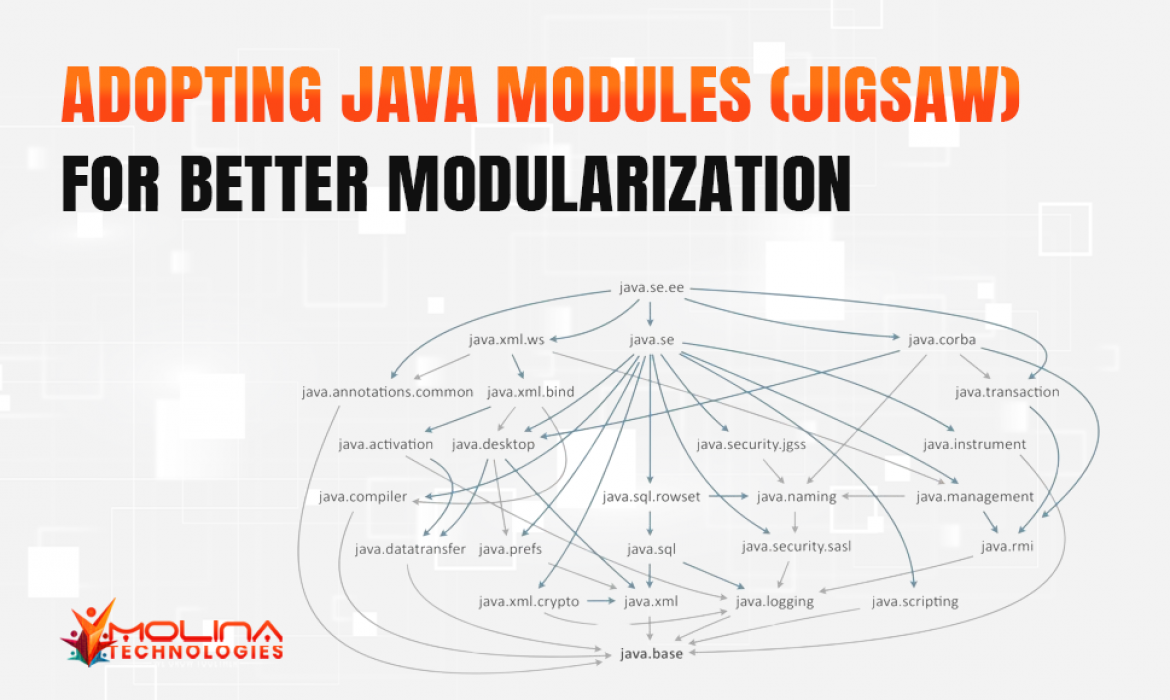
The world of software development thrives on organization. Like a well-oiled machine, each component needs to function seamlessly with others while maintaining its defined role. This principle becomes even more crucial when building large-scale applications, where codebases can sprawl like tangled vines.
For Java developers, the pre-Java 9 era presented a challenge. While packages offered a basic level of organization, they needed to provide the true isolation and encapsulation needed for robust modularity. Enter Project Jigsaw, a revolutionary feature introduced in Java 9 that brought the power of modules (officially known as Java Platform Module System, JPMS) to the table.
Think of JPMS as a jigsaw puzzle for your Java code. Each module represents a piece containing a well-defined set of functionalities and dependencies.

These pieces can then be assembled to create a complete application, but only by interlinking them through explicit declarations. This approach empowers developers with several benefits:
- Enhanced Encapsulation: Modules act like self-contained units, encapsulating their code, data, and resources. This restricts unauthorized access, promoting better code security and maintainability. Imagine a jigsaw puzzle piece with its miniature box – you know exactly what’s inside and how it connects to the bigger picture.
- Improved Dependency Management: With modules, developers explicitly declare the dependencies their module needs to function. This transparency reduces runtime errors caused by missing or conflicting dependencies. It’s like having a clear instruction manual for each puzzle piece, outlining precisely what other pieces it requires to fit in.
- Reduced Classpath Complexity: Prior to JPMS, developers had to wrestle with long and messy classpaths, where every package and library needed to be explicitly referenced. Modules offer a streamlined approach, specifying dependencies directly. Imagine a jigsaw puzzle where each piece has its own connection point, eliminating the need for a sprawling network of puzzle glue.
- Streamlined Development Process: Developers can test and deploy modules independently by isolating modules. This modularity facilitates parallel development, allowing teams to simultaneously work on different application parts. It’s like building a jigsaw puzzle collaboratively; even if teammates work on various sections, they can eventually connect their pieces to create a cohesive whole.
- Stronger Security: Modules grant finer control over access permissions. Developers can define which classes and resources other modules can access, enhancing overall application security. Picture jigsaw puzzle pieces with security locks – only authorized pieces can connect, protecting sensitive information.
Beyond the Basics: A Look at Module Types
JPMS offers a variety of module types to cater to different development scenarios:
- Automatic Modules: These are generated by the Java compiler for existing source code.
- Modular JARs (MJARs): These are JAR files designed explicitly for modules containing the module descriptor and its code.
- Unnamed Modules: These are useful for internal implementation details within an application.
- Open Modules: Designed for sharing public APIs with other modules.
- Modular Services: A specialized type of module offering services to other modules at runtime.

Understanding Potential Challenges
While offering significant advantages, adopting JPMS isn’t without its challenges. Existing legacy codebases might require refactoring to adapt to the modular structure. Additionally, developers need to adjust their workflow and understand the new module declaration syntax.
However, the long-term benefits outweigh the initial learning curve. By embracing the Jigsaw approach, developers can create robust, maintainable, and secure Java applications, paving the way for a more efficient and collaborative development process.
MolinaTek: Your Partner in Building Modular Masterpieces
Are you ready to unlock the power of JPMS in your Java projects? MolinaTech empowers developers with the knowledge and expertise to navigate the modular revolution. We offer comprehensive training programs, workshops, and consulting services to help you leverage the advantages of JPMS effectively.

